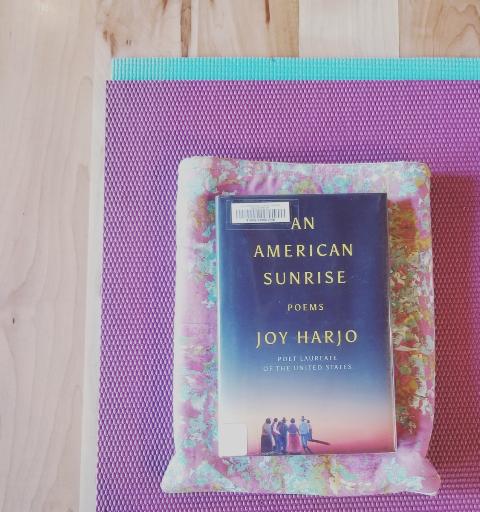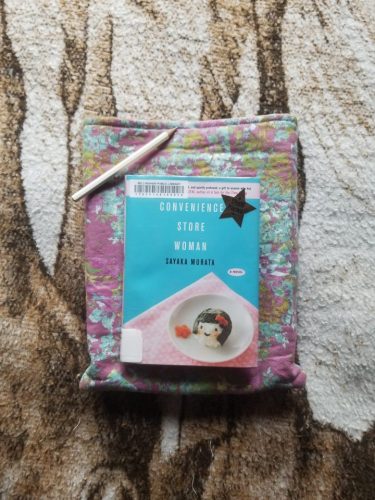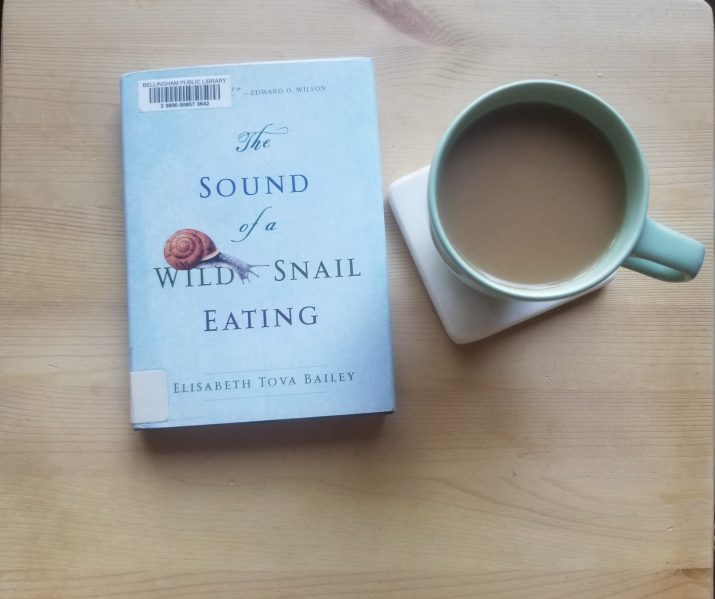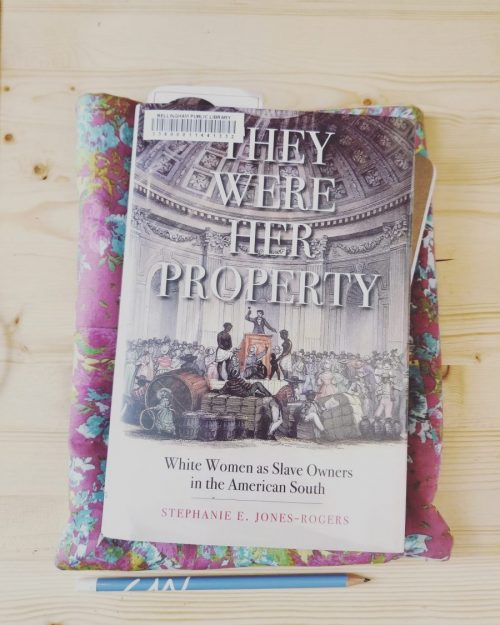Convenience Story Woman by Sayaka Murata, translated by Ginny Tapley Takemori was a facinating little…

An American Sunrise by Joy Harjo
In An American Sunrise: Poems, Joy Harjo reappropriates a portion of United States history and centers Native Americans within it, removing the sanitized version of events that many / most of us learned in history class. The broken promises are presented succinctly and the planned removal and subsequent execution of this land’s native peoples are provided in stark black and white. But it focuses not only on the horrors of this history but also on the persistence and hope that exist within Harjo and other Native Americans.
Harjo nestles her work within historical references and curated contributions from other artists. In doing so she creates a beautiful collaborative work of art that pushes back against the doctrine of Manifest Destiny and the dehumanization it required, and the result: the idealized Land of the Free. That “freedom” came at great cost: the lives and autonomy of America’s native nations. This work is a reminder that America has never properly atoned for her sins, and has managed to forget so much of history. While history books may mention the Trail of Tears, nuance is missing; shame and sorrow are absent as well.
One of the many things that stood out to me was the inclusion of an Emily Dickinson’s poem, “I’m Nobody! Who Are you?” There’s a small caption at the bottom of the page (60), “Emily Dickinson was six years old when Monahwee and his family began the emigration to the West.” (Harjo focuses on this ancestor, Monahwee, throughout the collection, using him to provide context, to show the many experiences of Native Americans at the time and to push back against stereotypes.) Here she pulls back to loop in Great Britain, one of the progenitors of colonized America, and a celebrated poet who was an innocent child while The Trail of Tears was claiming lives of all ages because land was wanted but it’s people were not.
Particularly chilling and effective was her deftness at narrowing in to this present moment in America. The promises of The United States, its declarations, its ethics require a coldness, exclusion, selfishness, and unsustainability that have started and continue to swallow a continent and world whole.
A country is a person.
A country is a noun, to be bought an sold. I have a deed.
……………………………………………………….
We cannot own anyone else, people, the lands, or resources. We are here to care for each other.
We are right. We build walls to keep anyone who is not like us out of
here. God gave us these lands. We separate children and cage them
because they are breaking our God’s law.
………………………………………………………..
There will be no balance without all voices present in the power circle.
You will never earn your way here. You are the wrong sex, wrong color of
skin, wrong sexual orientation, not my religion, not my language.
We are making our grandchildren’s world with our words. We
perceive a world in which everyone sits at the table together,
with enough for everyone.
“We will make this country great again.” (79-80)
There is wisdom in those words if we’d only listen.
And because this collection is giving context and nuance to history, not all poems sit heavily on the page and in the heart. Some are hopeful; “Granddaughters” comes to mind. Some are full of resistance and resilience as seen in “The Fight.” Some are written in her language, and through the translations we are invited along. And some short sections / pieces illustrate how the erasure of Native Americans was so thorough that the world thinks they are extinct.
This is the first collection of poems I’ve read by Harjo, previously I’d only read her memoir, Crazy Brave, which was also amazing and deserves a re-read. And though I am far from an expert in poetry, I think this collection was perfect. It was a history lesson, a lesson in empathy, a lesson for the future, and a lesson in good poetry and the structure of collections.



Comments (0)